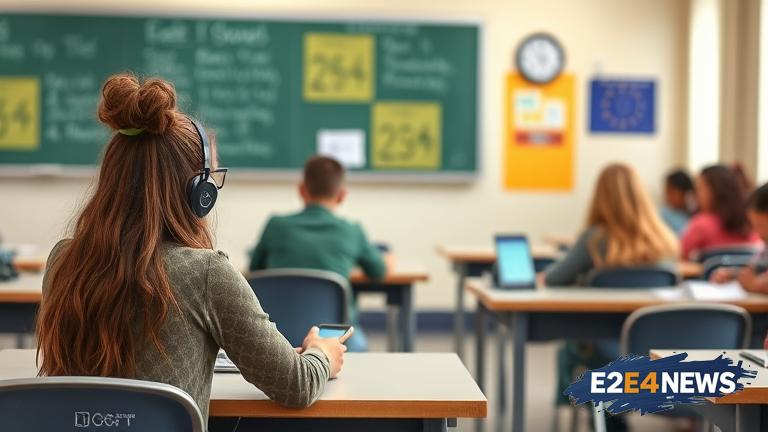In a bid to enhance the learning experience and promote social interaction among students, Paw Paw schools in Michigan have introduced a phone-free classroom policy. This initiative aims to minimize distractions and encourage students to engage more actively in the learning process. By banning cell phones in the classroom, educators hope to improve focus, attention span, and overall academic performance. The policy is part of a broader effort to address the growing concern about the impact of screen time on children’s cognitive and social development. Michigan lawmakers have also been actively involved in promoting phone-free classrooms, with several bills being introduced to support this initiative. Administrators at Western Michigan schools believe that this policy will help students develop essential life skills, such as communication, empathy, and problem-solving. By disconnecting from their devices, students can reconnect with their peers, teachers, and the learning material, leading to a more immersive and effective educational experience. The phone-free policy is also expected to reduce cyberbullying, social media distractions, and other online-related issues that can negatively impact the school environment. Moreover, this initiative will enable teachers to design more engaging and interactive lesson plans, incorporating traditional teaching methods with modern educational technologies. The response from students, parents, and educators has been largely positive, with many acknowledging the benefits of a phone-free classroom. However, some concerns have been raised about the potential impact on students’ ability to access important information, take notes, and collaborate on projects. To address these concerns, schools are exploring alternative solutions, such as providing students with specialized devices or software that can facilitate learning while minimizing distractions. The phone-free policy is also being seen as an opportunity to promote digital literacy and responsible technology use among students. By teaching students how to use technology effectively and responsibly, educators can help them develop essential skills for the digital age. Furthermore, this initiative can help reduce the risk of technology addiction, social isolation, and other negative consequences associated with excessive screen time. As the phone-free policy continues to be implemented and refined, educators and administrators will be closely monitoring its impact on student engagement, academic performance, and social skills. The results of this initiative will be crucial in informing education policy and practice, not only in Michigan but also across the United States. In conclusion, the phone-free classroom policy in Paw Paw schools represents a significant step towards creating a more engaging, interactive, and effective learning environment. By prioritizing face-to-face interaction, social skills, and academic focus, educators can help students develop into well-rounded, responsible, and successful individuals. The success of this initiative will depend on the continued collaboration and commitment of educators, administrators, lawmakers, and the broader community. As the education sector continues to evolve, it is essential to stay informed about the latest developments, research, and best practices in promoting phone-free classrooms and responsible technology use. By working together, we can create a brighter, more sustainable future for our children and our society as a whole. The phone-free policy is a timely reminder that education is not just about academics, but also about developing essential life skills, social skills, and emotional intelligence. By putting the needs of students first, we can create a more compassionate, inclusive, and supportive learning environment that fosters growth, creativity, and success. In the end, the phone-free classroom policy is a positive step towards reclaiming the classroom as a space for learning, growth, and human connection.
